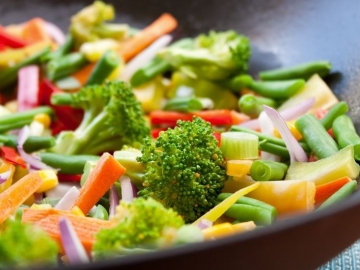
Posted on: 18 July, 2022
Drinking alcohol in moderation can be part of a healthy lifestyle, but many Australians consume far more than what’s recommended.
3 minute read
Some of alcohol's debilitating effects are well-known, such as how it damages liver function and impairs reaction times when driving, but what’s less known is its effect on teeth, gums and overall oral health.
In recognition of Dry July, we look at the alcohol-related risk factors for oral health and the steps you can take to lower them. If you have questions about your oral health, please get in touch with the team today.

As the entry point to your body, it's natural that alcohol can leave an impact on your mouth. Alcohol can contribute to a number of oral health problems, though its effects vary depending on what you drink, how much you drink and total alcohol content.
A 2017 comparative study of alcoholic and non-alcoholic dental patients found that those who were alcohol-dependent had higher rates of:
This comparison does not reflect the average Australian's alcohol consumption, but even moderate drinking can affect oral health in similar ways. These include:
Many alcoholic drinks and mixers are high in sugar and/or acid content, which can weaken tooth enamel through prolonged exposure.
Heavy drinkers are also at a higher risk of developing plaque build-up. This is where bacteria in plaque feed on sugar and other carbohydrates and release acids that create a film over teeth and slowly erode enamel. Without a proper oral hygiene routine, this process creates holes in teeth (cavities) and may require dental treatment such as a filling or root canal therapy to seal gaps and remove bacteria.
Many alcoholic drinks also expose teeth to direct acid wear, such as white wine, cider, drinks with added citrus and mixers. Acid weakens teeth making them more prone to damage.
Drinking alcohol increases the risk of developing gum disease and worsens symptoms for those already living with the condition. Bacteria that cause tooth decay can also inflame or infect the gums and spread faster if alcohol causes you to have a dry mouth.
People who drink excessive alcohol are also more likely to develop advanced gum disease (also known as periodontitis). Without early treatment, this may lead to gum recession, wobbly teeth and eventually tooth loss.
Gum disease is also a risk factor for developing systemic diseases in other parts of the body, including diabetes, heart disease and stroke, so prevention and treatment are important for managing your overall health risks.
Alcohol can be damaging to the protective lining of the mouth. After tobacco use, excessive alcohol consumption is one of the primary risk factors for developing oral cancer.
Heavy drinkers may be up to four times more likely to develop oral cancer, while drinking and smoking could increase your risk factor up to 15 times, according to the Australian Dental Association (ADA). Cutting down or quitting altogether will lower your risks over time.
Oral cancer develops in different tissues in and around the mouth, including the cheeks, gums and lips. Recurring mouth ulcers, patches or discolouration that last longer than two weeks may be a warning sign.
Oral cancer screenings are included as part of your routine dental check-up at Mount Lawley Dental.
Alcohol acts as a diuretic, which can reduce saliva in the mouth. Long-term heavy drinking may impair salivary gland function, leading to a condition known as dry mouth (xerostomia).
Saliva is important because it washes away bacteria and neutralises acids on teeth, without enough saliva, your mouth is prone to a greater risk of damage from decay, gum disease and other problems.
Dry mouth can be avoided by drinking water alongside alcohol and avoiding drinks with a high alcohol content, such as spirits.
If the effects of alcohol lead to falls, violence or other injuries, you may need to see an emergency dentist for broken or lost teeth.
Chewing ice blocks or opening bottles with your teeth also risks chipping or cracking teeth, especially if the enamel has already been weakened by acids.
Alcoholic drinks can also contribute to teeth staining, particularly dark-coloured beverages such as red wine, dark beers and mixers.
These effects may be reduced by sipping water or drinking through a straw so alcohol can bypass the front of your teeth. Teeth whitening treatments can lift stains, but the effects fade without ongoing maintenance.
Even drinking in moderation can expose teeth to sugars and acids, but oral health risks generally increase as more alcohol is consumed. Australian guidelines recommend:
However, a recent global study on alcohol consumption challenges these guidelines, suggesting there are no health benefits to drinking alcohol for those aged between 15 to 39 years, only risks. The authors of the study want guidelines changed to be age-specific and geography-based.
Oral health risks can increase significantly if you smoke tobacco or use drugs and drink alcohol.

Most people can enjoy alcohol as part of a healthy lifestyle when drinking responsibly. You could also reduce its impact on your oral health by:
This month is Dry July. The Dry July Foundation is able to help local and national cancer support organisations across Australia deliver practical, tangible support services for people affected by cancer.
Are your teeth painful, damaged or stained, or do you just want some advice about your oral health?
Call our friendly team at Mount Lawley Dental on (08) 9227 8777 or contact us to book an appointment with our Perth dentists. We welcome patients from Highgate, Inglewood, North Perth and all nearby areas.

Budget-friendly Smiles: 8 Tips to Dodge Costly Dental Bills

The Role of Nutrition in Dental Health: Foods That Promote Strong Teeth and Gums

The Link Between Oral Health and Overall Wellbeing: Why Dental Care Matters